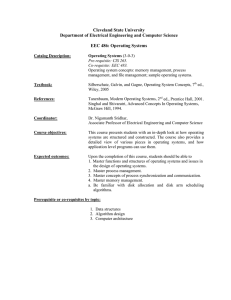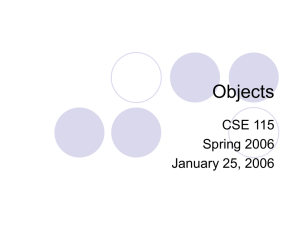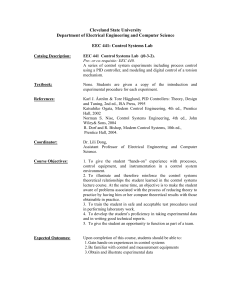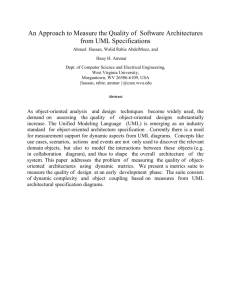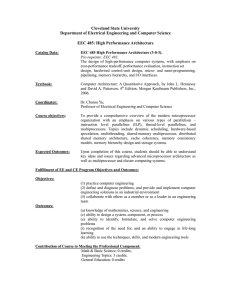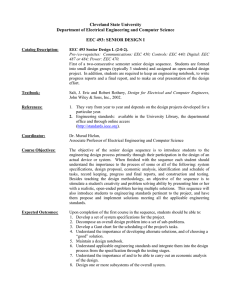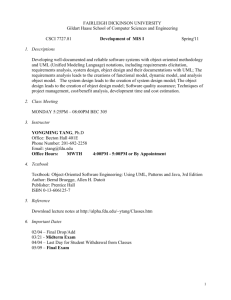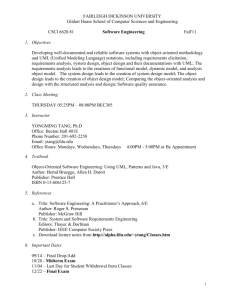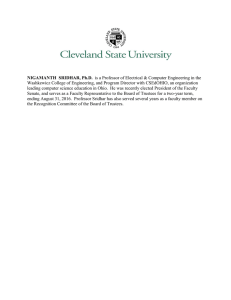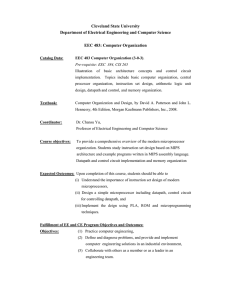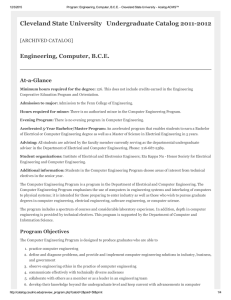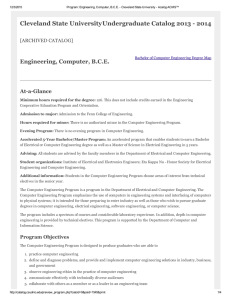Cleveland State University Department of Electrical Engineering and Computer Science
advertisement
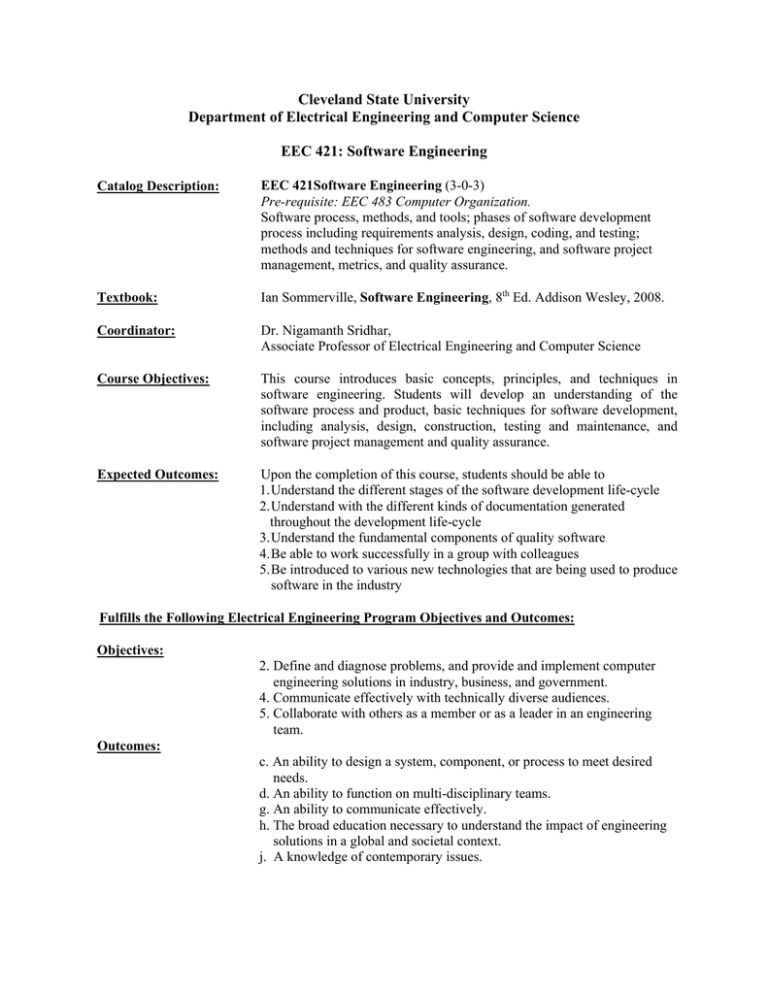
Cleveland State University Department of Electrical Engineering and Computer Science EEC 421: Software Engineering Catalog Description: EEC 421Software Engineering (3-0-3) Pre-requisite: EEC 483 Computer Organization. Software process, methods, and tools; phases of software development process including requirements analysis, design, coding, and testing; methods and techniques for software engineering, and software project management, metrics, and quality assurance. Textbook: Ian Sommerville, Software Engineering, 8th Ed. Addison Wesley, 2008. Coordinator: Dr. Nigamanth Sridhar, Associate Professor of Electrical Engineering and Computer Science Course Objectives: This course introduces basic concepts, principles, and techniques in software engineering. Students will develop an understanding of the software process and product, basic techniques for software development, including analysis, design, construction, testing and maintenance, and software project management and quality assurance. Expected Outcomes: Upon the completion of this course, students should be able to 1. Understand the different stages of the software development life-cycle 2. Understand with the different kinds of documentation generated throughout the development life-cycle 3. Understand the fundamental components of quality software 4. Be able to work successfully in a group with colleagues 5. Be introduced to various new technologies that are being used to produce software in the industry Fulfills the Following Electrical Engineering Program Objectives and Outcomes: Objectives: 2. Define and diagnose problems, and provide and implement computer engineering solutions in industry, business, and government. 4. Communicate effectively with technically diverse audiences. 5. Collaborate with others as a member or as a leader in an engineering team. Outcomes: c. An ability to design a system, component, or process to meet desired needs. d. An ability to function on multi-disciplinary teams. g. An ability to communicate effectively. h. The broad education necessary to understand the impact of engineering solutions in a global and societal context. j. A knowledge of contemporary issues. Contribution of Course to Meeting the Professional Component: Math & Basic Science: 0 credits; Engineering Topics: 4 credits; General Education: 0 credits Prerequisite or co-requisites by topic: 1. Object-oriented programming language 2. Data structures 3. Computer architecture Topics: 1. Software Product and Process a. Software Product b. Software Process, and Process Models 2. Requirements Engineering a. Software Cost Estimation b. Analysis Modeling c. UML d. Formal Specification 3. Software Design a. Introduction to software design b. Software architectural design c. Object-oriented design d. Design Patterns e. Refactoring 4. Software Verification and Validation a. Testing, Verification, and Validation b. Black-box Testing c. White-box Testing d. Object-oriented Testing Tests, reviews, and student presentations Total Computer Usage: Programming languages, UML design tools Assignments: 1. Requirements Analysis 2. Analysis Modeling and Design 3. Software Testing Prepared by: Date: Dr. Nigamanth Sridhar July 29, 2013 2 4 2 6 2 4 2 2 4 2 2 2 2 2 2 5 45
